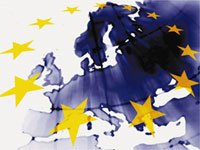
Europe - the EU and the European Union Member States combined - is the biggest provider of development aid on the planet, responsible for 57% of total world aid in 2006. The role of the European Commission’s Directorate General for Development is two fold. It formulates the EU’s development cooperation policy and co-ordinates relations with the ACP (Africa, Caribbean and Pacific) countries. This group of countries receive EU development aid under the terms of the Partnership Agreement between them and the European Community, known as the Cotonou Agreement.
The international community has set time-bound and measurable goals for combating issues such as poverty, hunger, disease, illiteracy, environmental degradation and discrimination against women. In the year 2000, world leaders agreed on a series of eight Millennium Development Goals which range from halving extreme poverty to halting the spread of HIV/AIDS and providing universal primary education, all by the target date of 2015. 2007 is the half-way point in this initiative.
In December 2005, the European Union reinforced its key role in global development aid through a shared vision called the European Consensus on Development. This is a policy statement jointly adopted by the Council, the Member States, the European Commission and the European Parliament. It reflects the European Union’s willingness to make a decisive contribution to the eradication of poverty in the world and to help build a more peaceful and equitable world.
See full Report, in pdf format.



